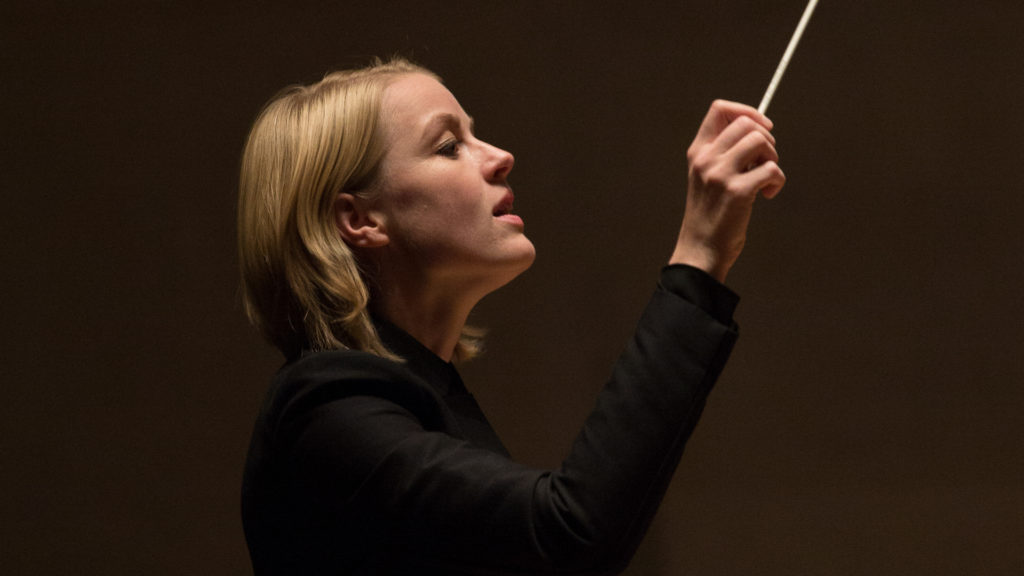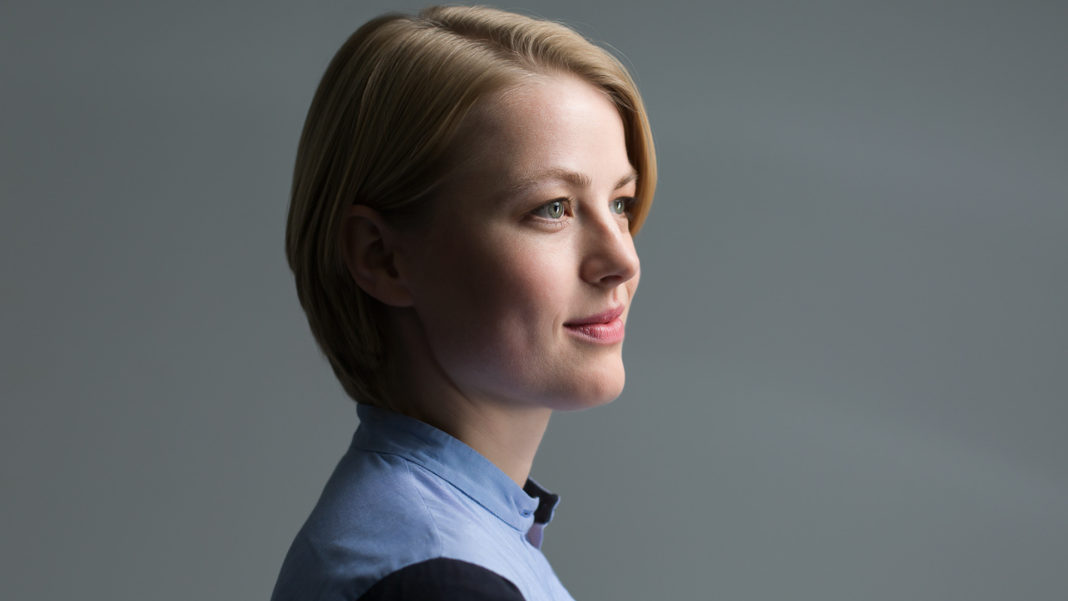The Los Angeles Philharmonic has a long history of inviting women conductors to lead them. The first woman to take the podium was Ethel Leginska in 1925. Last week Tianyi Lu was conducting Pictures at an Exhibition. On Tuesday of this week, Ruth Reinhardt will lead a program that includes two works by Felix Mendelssohn and Wolfgang Amadeus Mozart’s Piano Concerto No. 20 with soloist Eric Lu.
The German-born Reinhardt, who has conducted with orchestras around the world, got her Master’s Degree in conducting from Juilliard. She had conducting fellowships with the Boston and Seattle symphonies before being named a [Gustavo] Dudamel Conducting Fellow with the Los Angeles Philharmonic during the 2017-2018 season.

I was hoping to speak with Reinhardt about the concert, but vocal issues meant we had to correspond via e-mail instead. Here’s our exchange:
When Leginska conducting the Los Angeles Philharmonic in 1925, Isabel Morse Jones said in her review for the Los Angeles Times that the conductor was “a master of music, not men.” Has the classical music world opened up as much as you’d like for conductors who happen to be women?
The classical music world has clearly opened up a lot in the past century. But the fact that we still talk this much about being a woman in this field means that’s apparently still “a thing” to be female conductor. It’s not normal yet. True equality will be reached on the general of a conduct will be as trivial as the color of that person’s hair.
It should be noted here that in Bachtrack‘s annual survey of classical music for the year 2019 (the most recent one completed due to the pandemic), only eight women appeared in the ranks of the top 100 conductors. That is up from one woman in 2013.
When you conduct a piece as widely performed as the Mozart piano concerto, knowing that not only did the composer play it, but Beethoven, Brahms, Clara Schumann and others have, how do you go about finding new revelations in the score and how often do you make such discoveries? How does that translate to the performance the orchestra and soloist will give?
In general I treat every piece of music the same – no matter if ten famous people have played it or no one. My job as conductor is always the same: to analyze the piece, find out what it is about and try to bring that out together with the orchestra. I also feel that music is truly about the time that the performer and audience members live in; the performance is informed by the circumstances one lives in and is an interaction or dialogue.
Young musicians face enormous pressure to make it big quickly and to brand themselves. When you’re working with someone like Eric Lu, who is only 21 years old, what do you think are amongst the most important things someone like him can do to create a long career?
I don’t really feel in any position to give Eric any advice, particularly since he’s doing so well. But I guess every musician, no matter how old or young, needs to figure out what kind of events/projects make them happy and what repertoire suits them and they can easily turn into a success.
The concert opens with the Hebrides Overture by Mendelssohn. The composer suffered from severe seasickness on his journey to Scotland. Yet in spite of that illness, he was inspired to begin composing immediately the opening them of the work. Have you experienced anything in your own life where it was abysmal to get through, but ultimately yielded something beautiful?
I, too, have been quite seasick and I feel with Mendelssohn. So if I had to compose something right after I would have been very quick, too.
He described his 4th Symphony* that is also on the program as “the jolliest piece I have written…and the most mature thing I have ever done.” What, then, do you make of his constant revisions of the work that continued right up until his death in 1847?
We often view Mendelssohn as this happy composer, to whom success and everything else came easily and early, but we shouldn’t forget that he was also extremely self-critical. He revised most of his orchestral works, some even more than once and was also about the 4th symphony at first very unsure. He wrote to a friend, to whom he sent the score for a performance, that he “isn’t quite sure if this is any good at all.” I find it rather sympathetic that a composer of such incredible ability was still self-critical and always trying to aim for yet a higher level!
What faith do you have in the system that the opportunities you and other women conductors have right now will be long-term and sustaining and not just a reaction to #MeToo and other issues?
I believe that in the longterm quality will prevail, no matter what the gender, race, faith or color of skin. I am glad to see increasing attention being paid to inclusiveness in the classical music scene and elsewhere. Of course bias still exists, it’s simply an unfortunate reality of the world, but you can’t let that hold you back. I don’t think gender is relevant in the assessment of a conductor, who is ultimately measured and evaluated by his or her skills and abilities to interpret the music, an orchestra, and know all the things that a conductor must know to do the job effectively, and I believe that’s what it comes down to.
You were bitten by the classical music but as a 9-year-old performing Verdi’s Otello was a choir member. How would the 9-year-old version of yourself respond to whom you have become today?
I guess the 9-year-old version of me would be in a bit of disbelief. But probably I would also ask, what one could possibly find interesting about waving a stick around, rather than [having] a career as a singer or actor.
For tickets to Tuesday night’s concert, please go here.
*Mendelssohn’s Symphony No. 4 is nicknamed Italian. Anyone who knows the film Breaking Away will immediately recognize the music.
All photos of Ruth Reinhardt courtesy Ruth-Reinhardt.com. Main photo by Jessica Schaefer.










